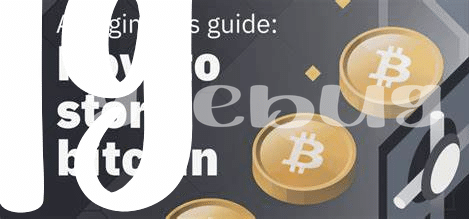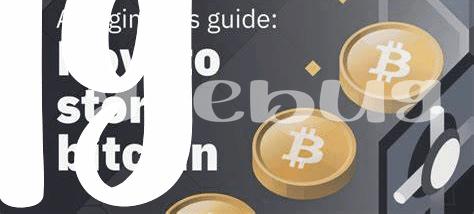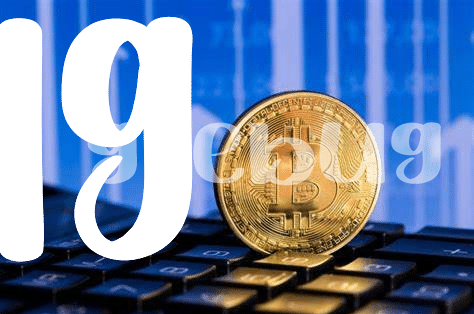📚 Decoding Bitcoin Wallets: What Are They?

Imagine having a special key that lets you access your digital treasure chest, filled with valuable coins that can grow or shrink in value over time. This is what a Bitcoin wallet is like. It’s not a physical wallet you carry in your pocket, but a digital one, where you keep your Bitcoins safe and sound. Think of it as your very own bank vault, but instead of storing paper money or gold, you’re keeping digital currency.
Now, let’s break it down a bit more. A Bitcoin wallet doesn’t actually ‘hold’ your coins in the traditional sense. Instead, it safeguards your digital keys—special codes—that prove you own certain Bitcoins and allow you to spend them. It’s these keys that you need to protect. To understand this better, see the table below:
| Component | Description |
|---|---|
| Digital Keys | The ‘passwords’ that unlock your access to spend your Bitcoins. |
| Bitcoin Wallet | A secure digital space to keep your keys safe. |
This modern-day treasure chest is the first step in joining the exciting world of Bitcoin. Whether you’re buying, spending, or saving, your wallet is your companion through your digital currency journey.
🛡️ Hot Wallets: Convenient but Risky?
Imagine you’re out and about, ready to pay for your coffee with Bitcoin straight from your phone. That’s the magic of what we call hot wallets! These wallets are like carrying your digital money in your pocket, available online for quick access. They make buying or trading Bitcoin super easy, perfect for everyday use. But, like anything that’s online, they come with their risks. Because they’re connected to the internet, they might attract unwanted visitors, like hackers, trying to sneak into your digital wallet.
Despite those risks, hot wallets aren’t all bad news. They offer convenience that’s hard to beat, allowing you to manage your Bitcoin with just a few taps on your device. However, it’s like walking through a bustling market with your wallet open; you need to be cautious. Don’t worry, though; being smart about how you use your hot wallet can go a long way in keeping your digital coins safe. And remember, whether you’re thinking of selling your Bitcoin or just curious about everyday purchases you can make, there’s always more to learn. For instance, you might want to check out https://wikicrypto.news/from-coffee-to-cars-everyday-purchases-with-bitcoin for great tips and insights.
🏦 Cold Wallets: Your Digital Fort Knox.

Imagine having a super secure safe, hidden away from the world, where you keep all your treasures out of harm’s way. That’s pretty much what we’re talking about when we mention these specialized wallets. Unlike their online counterparts, these wallets are not connected to the internet. This makes them less accessible to hackers, ensuring your digital gold stays safe. Picture it as storing your valuables in a digital Fort Knox, where only you have the key, making it a go-to choice for those looking to keep their assets secure over the long haul.
However, with great security comes a bit of a trade-off. Accessibility is not as quick and easy compared to when your assets are just a few clicks away on an online platform. You’d need to physically access your device to manage or move your treasures. But think of it this way: it’s like keeping your most valuable possessions in a vault; while it might take a few extra steps to reach, the peace of mind knowing they are safe is unparalleled. In the realm of digital currencies, opting for this method is like choosing to walk with a shield, ensuring your assets remain untouched and exactly where you left them.
🔄 Hybrid Wallets: Best of Both Worlds?

Imagine a wallet that tries to give you the best of both worlds: easy access to your bitcoins when you need them, like for quick transactions online, and the safety of a vault tucked away from prying eyes. That’s where hybrid wallets come into play. They’re like having a foot in two boats, trying to balance between the convenience of having your bitcoin close by (‘hot’) and the security of keeping them in a locked-down treasure chest (‘cold’). For someone diving into the world of Bitcoin, deciding where to keep their digital treasure can be daunting. Hybrid wallets aim to reduce this fear by offering a safer harbor without chaining you away from the bustling market. With these wallets, you get a mix of security and accessibility, but remember, the balancing act requires a bit of savvy on your part. This is crucial for beginners who are also trying to navigate how the market works, including understanding how to sell bitcoin for beginners. Every choice in the digital currency world has its trade-offs, and hybrid wallets illustrate this by blending two different approaches in the hopes of striking a golden middle path.
🚨 Common Pitfalls with Bitcoin Wallets.
When diving into the world of Bitcoin wallets, it’s easy to stumble into a few traps. One common mistake is using the same wallet address for every transaction. This might seem like a handy shortcut, but it’s a bit like leaving a digital trail of breadcrumbs leading straight to your money stash. Imagine if every time you used a dollar, everyone could see where all your dollars lived. Not ideal, right? Another pitfall is neglecting software updates. Wallet developers constantly tweak their software to fend off hackers. Skipping an update is like leaving your digital door unlocked, inviting trouble.
Now, let’s break down these pitfalls a little more:
| Pitfall | What It Means | Why It’s a Problem |
|---|---|---|
| Reusing Wallet Addresses | Using the same address for multiple transactions. | Makes it easier for others to track your transactions and balance. |
| Ignoring Software Updates | Not installing the latest wallet software versions. | Leaves your wallet vulnerable to new threats and hacking techniques. |
Avoiding these mistakes doesn’t just protect your digital coins; it shields your financial privacy. Just like you wouldn’t share your bank account details on social media, keeping your Bitcoin dealings discrete and your wallet up to date is key to staying secure in the digital currency space.
🛠️ Safeguarding Tips for Your Bitcoin Wallet.

Keeping your Bitcoin safe is a bit like looking after a digital treasure chest. First off, always make sure your software is up to date 🔄; those updates are like the guards that keep hackers at bay. Opting for a strong and unique password is another solid step – think of it as a tricky lock only you can open 🔑. Two-factor authentication (2FA) can add an extra layer of security, acting like a secret handshake that only you and your wallet know. Regular backups are essential too – imagine if your digital treasure map got lost; backups ensure you always have a copy. And for those really valuable treasures, consider a multisig wallet, which requires multiple keys to unlock, adding an extra level of security. Finally, for the curious minds wondering about the practical use of Bitcoin, check out what is the future of bitcoin in 2024 for an insight into the exciting possibilities that Bitcoin holds for the future. These simple steps can go a long way in navigating the digital seas safely.
